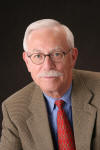A Widow’s Grief: Compassion – James Windell
 When my friend and co-author Kristin Meekhof and I began interviewing widows for a book we are writing about helping widows deal with the many challenges of losing a husband, I expected to see anger. After all, that’s what Elisabeth Kubler-Ross wrote in her book “On Death and Dying” would be one of the earlier stages of grief. After denial comes anger, she wrote in 1969.
When my friend and co-author Kristin Meekhof and I began interviewing widows for a book we are writing about helping widows deal with the many challenges of losing a husband, I expected to see anger. After all, that’s what Elisabeth Kubler-Ross wrote in her book “On Death and Dying” would be one of the earlier stages of grief. After denial comes anger, she wrote in 1969.
One of the early interviews Kristin and I did was with a woman I’ll call Michelle. An attractive, friendly woman, she had lost her husband of five years to suicide. And to make matters worse, she found him hanging in their bedroom. If any widow would display anger – perhaps even rage – it would surely be Michelle. She, as much as any widow we subsequently interviewed, had reasons to be angry.
As we were talking to her, I put myself in her position, and silently said to myself that if I were in her situation I would be very angry. How could someone I loved and someone I had so much fun with do this to me – and to themselves? It wasn’t fair and it wasn’t right.
Yet, that’s not at all what we discovered with Michelle. She wasn’t angry. Instead, she was a woman at peace – with her deceased husband and with herself. She could talk about him as a loving husband with whom she had shared a happy life. She recalled that the night before he took his life, they had dinner with friends and had a wonderful last evening together.
So, why wasn’t she mad at him or at God for allowing this? Or, why wasn’t she angry with herself for not having seen this coming?
“I wasn’t angry at him,” Michelle said when I asked her if she had felt anger because of him taking his own life. “I felt love and compassion. I knew how troubled he must have been, and I could only imagine what he had been going through.”
She admitted that people she knew – perhaps, too, being aware of the Kubler-Ross stages of grief – told her she should be angry. “But that wasn’t me,” Michelle said. “I didn’t feel anger.”
Michelle went on to tell us that she accepted his death, although it wasn’t easy, and she had compassion. And although we have gone on to interview nearly 50 widows, this interview stands out in my mind as one that has a great deal of meaning. I think about compassion and how hard it would be to have compassion for a surviving spouse after he or she dies – whether by their own hand or by disease or accident. Compassion may not come that easily when someone we care deeply about is taken from us unexpectedly.
I’ve tried to remember what I learned about compassion from all the years I attended church services and listened to ministers and religious leaders deliver sermons. I recalled that Jesus in Matthew looked on a crowd of people who were harassed and helpless and had compassion for them. That, to me, seems to sum up what Michelle felt and thought about her beloved husband who killed himself. She believed he was harassed by his personal, psychological demons. He didn’t take his life to ruin hers, nor did he commit suicide out of spite or vindictiveness. As she was so able to accept, he was battling his own conflicts and inner turmoil – probably since childhood – and he lost out.
Marriage is so personal and so emotional, yet Michelle did not take his death personally. “His suicide is a part of my life,” she said to us, “but it’s not who I am. I am not his suicide.”
Although, she knows she lost a great love in her life, Michelle’s compassion, her ability to look on his death as something for which she can feel loss but also take strength, has helped me to see that all of us can have compassion for others – even those who hurt us or leave us – in even the most extraordinary of circumstances.
James Windell is an author, columnist, and college instructor. He is the author or co-author of 18 previous books, a newspaper columnist, editor of The Michigan Psychologist, and a group therapist with adolescent delinquents. He teaches criminal justice classes at Wayne State University in Detroit. He writes a wide variety of books, including those related to parenting, medicine, psychology, and criminal justice.

